MASTER OF POLITICAL SCIENCE: EUROPEAN AND INTERNATIONAL GOVERNANCE
A one-year master in English (daytime programme)
STUDY EUROPE AND THE WORLD
Taught in English, this Master is a one-year programme concerning two of the most important fields of political science: European studies/governance and international politics/relations. This programme will allow Belgian and international students to acquire the skills and know-how they need to kickstart their career in diplomacy, national and international institutions or any related professional fields (such as lobbying, journalism, policy development and academic research).
INTERESTING TIMES
It is hard to imagine more interesting times to study European and international politics. The European Union (EU) is facing internal and external challenges that were almost unimaginable until just a few years ago. These challenges include the rise of nationalism, cracks in the European project, economic inequality and an ever-growing urgency to mitigate climate change and find a coordinated response to international mobility and forced displacement. In a similar vein, the context in which nations interact in regards to world politics has changed substantially. Factors such as the erosion of a liberal world order, the rise of the Chinese Republic and more assertive foreign policies of countries such as Russia and Turkey increasingly dominate international politics.
Are you interested in gaining a better understanding of these dynamics? Do you aspire to contribute – if not shape – European and international politics, be it as a diplomat, journalist, administrator, official, think-tanker, scholar or simply engaged citizen? Then you are the ideal candidate for VUB’s Political Science Master in European and International Governance. The programme is taught in English by experienced professors that hold close links to the policy-making community in Brussels, an ideal stepping stone to develop a career in the fascinating field of European and international politics.
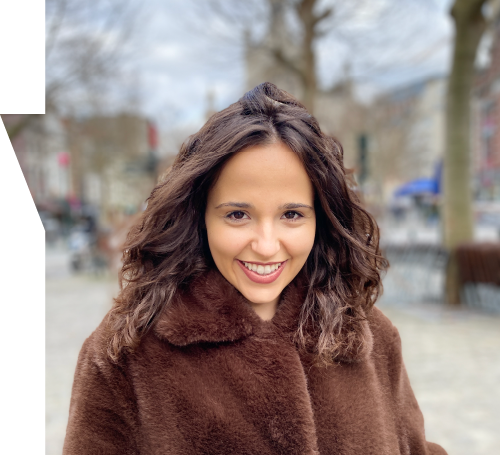 Aina Errando – Class of 2020
Aina Errando – Class of 2020
"This programme not only offers you the opportunity to get in touch with professional practitioners in the field but also to be fully immersed in an international environment. Besides that, courses are taught by qualified and up-to-date professors."
"It provides the right atmosphere to engage in interesting discussions with people coming from different backgrounds and make friends for life. It has undoubtedly enriched my life both academically and personally. If you have a passion for international and European politics... this master programme is for you!"
Aina is currently enrolled in the Master-after-Master in European Integration (specialization: Migration & External Relations) and working full-time as 'Partnerships and Communications Assistant' at the European Cancer Patient Coalition (ECPC).
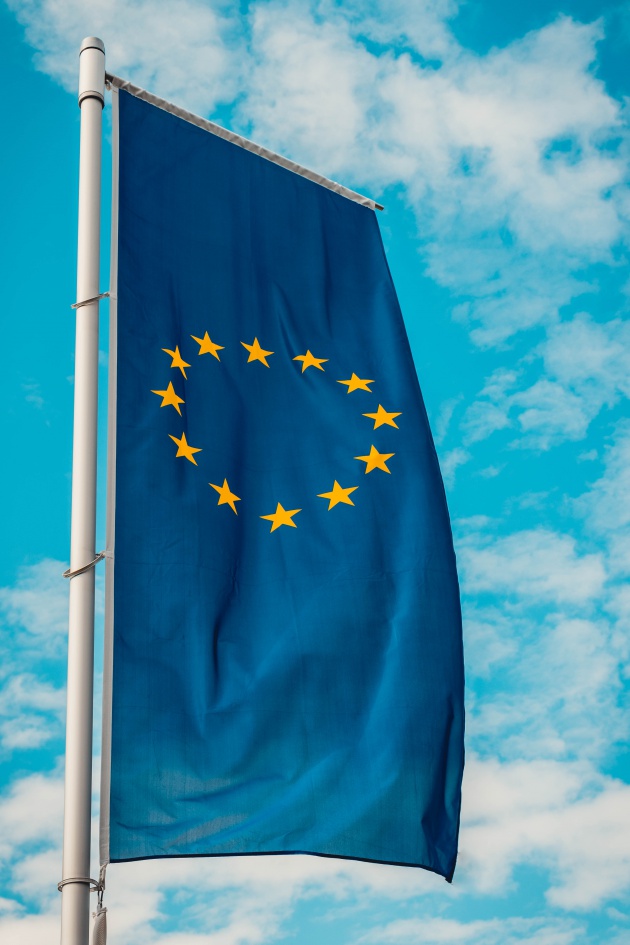
THE KEY ASSETS
LOCATION
Our programme is taught in one of the world's most important centers of governance, at a stone's throw away from the European institutions, NATO, and hundreds of embassies, corporate offices, and NGO's. This is the ideal point of departure for any student with an interest in international politics, offering the opportunity to participate in conferences off-campus, to find internships, to network and to engage in one of the many organizations.
EXPERIENCE
Many of our professors do not only have a proven track record in academic research and shaping the public debate; they are also involved in policy-making. They have thus an ideal background to mix academic knowledge with practical insights and are able to put their network at the disposal of their students.
FOCUS ON TODAY
Our programme combines extensive academic and theoretical knowledge with a strong focus on current affairs. The aim is to develop in-depth academic knowledge about European politics and international relations, the functioning of diplomacy and organizations, and the main powers in world politics.
SHARE TO LEARN
In a unique module on modern diplomacy, practitioners and experts in their field share their experience and insights. In this module, students are challenged to develop and train some indispensable practical skills, like negotiating, reporting and writing a diplomatic cable, as well as speaking in front of different groups or officials.
LECTURE SERIES
The programme also includes a high-level lecture series in which ambassadors, officials, corporate leaders and renowned officials are invited to offer a glimpse into their world and to provide some of the latest insights in key policy discussions.
ACADEMIA MEETS PRACTICE
Our professors teach you up-to-date political science concepts and theories on European and international challenges and responses. In a module on modern diplomacy, practitioners will share their experience and insights on how to contribute to the peaceful management of international relations. Beyond this module, the programme will fully capitalize on its embedment in Brussels, a city hosting NATO and EU institutions as well as the largest number of embassies and international journalists in the world.
The programme overview
The programme for next academic year consists of 3 categories (Methods, Skills and Leadership development and Substantive courses), for a total of 9 mandatory courses. Click on the course title to discover more details on each course.
| Methods | Total 18 ECTS |
| Research Design and Methodology | 3 |
| Master Thesis | 15 |
| Skills and leadership development | Total 12 ECTS |
| Skills Lab | 6 |
| Modern Diplomacy | 6 |
| Substantive courses | Total 30 ECTS |
| Institutions and Governance of the EU | 6 |
| World Politics | 6 |
| European Economics | 6 |
| International Political Economy | 6 |
| International Security and Strategic Studies | 6 |
A closer look at the content
---
Institutions and Governance of the European Union
This course will focus on the patterns and dynamics of the European integration process in times of crisis. It seeks to enhance the skills of Master students to analyse and understand some of the most challenging issues the EU has faced in recent years, from the economic and financial crisis and the threat of terrorism to the rising number of migrants and refugees travelling into Europe. The course will discuss these and other issues from different theoretical perspectives on European integration and governance. The overarching questions to be dealt with include:
- How democratic is the EU?
- How to theorize European integration in turbulent times?
- How has the EU responded to the Euro crisis?
- What is the EU doing to protect the environment?
- Counter-terrorism: does the EU manage to balance ‘liberty’ and ‘security’?
- Is there a Common European Asylum System?
- To what extent has the freedom of movement for EU citizens become contested?
- Is the EU’s enlargement policy vis-à-vis the Western Balkans and Turkey still credible?
- Is the EU able to stabilize its Southern and Eastern neighbourhoods?
European Economics
This course examines European integration from an economic perspective, with regard for both microeconomics and macroeconomics. The course builds upon basic economic concepts and focuses in detail on the role and evolution that macro- and microeconomic structures and theories have played in providing the EU with its past and current market architecture. It also does so by examining a variety of key EU policies: competition, trade, agricultural, regional, monetary and fiscal policy. Finally, the course offers a thorough analysis of the Eurozone crisis by looking at the effects of the global recession on the fundamentals of the European economy. Throughout the course, topics will be illustrated with recent press releases or interesting scientific articles.
International Security and Strategic Studies
War and peace have the power to change the world order and the daily lives we lead. This course aims to provide students with a conceptual toolkit to navigate contemporary questions in international security as perceived from a European perspective, and to make them familiar with key debates in strategic studies. Combining insights from history, political science, international relations and economics in an interdisciplinary spirit, this course offers students a range of lectures delivered by academics and expert policy-makers. These lectures will cover various conceptual questions (such as the causes of war, the logic of deterrence and the function of strategy) as well as geographical and thematic approaches (such as the present instability in the wider European neighbourhood, the transatlantic relationship and security in East Asia).
World Politics
This course looks at the world's major powers and their foreign policy, as well as at the political outlook of key regions. The aim is to develop, in each case, in-depth knowledge of the internal drives of foreign policy, the main objectives and organization of their foreign and security policy, and the interaction with countries in the surrounding area, other major powers, and international institutions.
Modern Diplomacy
Diplomacy aims for the peaceful cohabitation between a specific political community and the wider world. This course intends to provide master students with a conceptual introduction to discussions about modern diplomacy as it unfolds into practice, and to prepare them for a variety of related career paths. It will feature a number of lectures on key concepts and topical issues, as well as several sessions focused on practical diplomatic skills, such as negotiation techniques and drafting policy notes.
Learning outcomes
Learning outcomes describe the intended knowledge and understanding, skills and attitudes that you must have mastered by the time you completed your studies. Do you want to know more about the specific learning outcomes of this programme? Go to the learning outcomes overview for this programme.
Academic level
Studyplan overview
Meet the core lecture team
---
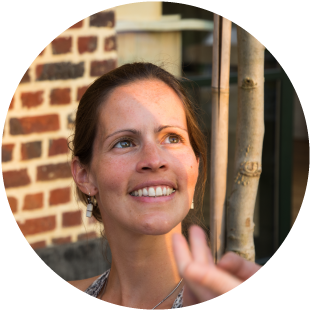
PROF. CAROLINE BUTS, PHD
Caroline Buts is professor at the VUB’s Department of Applied Economics at Solvay Business School, where she teaches Economics of European Integration and Competition Policy. Her research focuses on competition economics as well as on defense and peace economics. She frequently advises industry as well as policy on state aid matters. Since 2014, Caroline is managing editor of the European State Aid Law Quarterly.
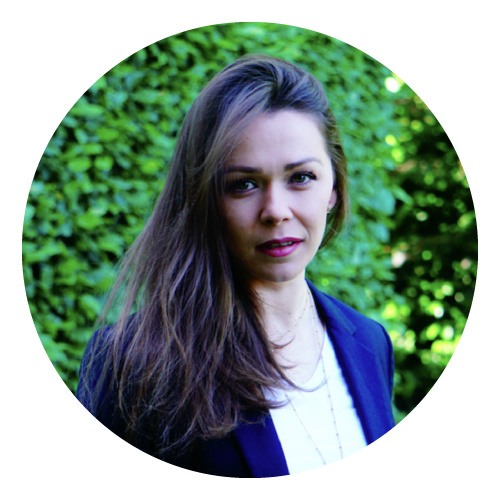
VJOSA MUSLIU, PHD
Vjosa Musliu is an Assistant Professor at the Political Science department at VUB. Her research focuses on international and European interventions with a particular focus on the Balkans and Eastern Europe. She is a co-editor of Routledge Studies in Intervention and Statebuilding Series. She has published widely on European and international politics journals. She is a co-author of an edited book called Unravelling Liberal Interventionism. Local Critiques of Statebuilding in Kosovo. In addition to her academic work, Musliu is a regular commentator for Balkan and European based media outlets.
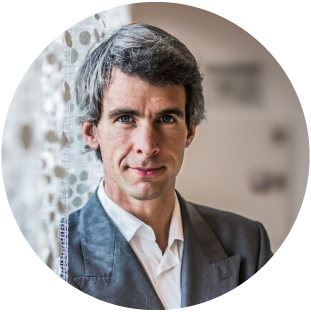
PROF. JONATHAN HOLSLAG, PHD
Jonathan Holslag teaches international politics at the Free University Brussels, as well as to various defence academies and leadership programmes. He has written various academic papers on Asian security and geopolitics, as well different books that were widely translated. Jonathan worked as a columnist and reporter for different news papers, as special advisor to the first vice-president of the European Commission, Benelux director of the Trilateral Commission and serves as a reserve officer in the Belgian armed forces.
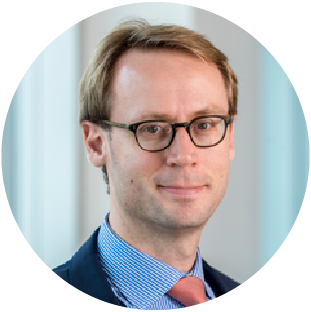
PROF. ALEXANDER MATTELAER, PHD
Alexander Mattelaer is the Vice Dean Research of the VUB Institute for European Studies. He is also a Senior Research Fellow at Egmont – the Royal Institute for International Relations and sits on the scientific committee of the Belgian Royal Higher Institute for Defence. As a Fulbright Schuman fellow he completed research stays at Harvard University and at the National Defense University; he also taught for three years as a Visiting Professor at the College of Europe. His research interests include the politics of European integration, transatlantic relations and NATO, defence policy-making, and the redefinition of state sovereignty.

PROF. FLORIAN TRAUNER, PHD
Florian Trauner holds a Jean Monnet Chair at the VUB’s Institute for European Studies. He has published widely on issues relating to European and international migration management and counter-terrorism policies. Among his recent publications is the ‘Routledge Handbook of Justice and Home Affairs Research’. Florian Trauner is a regular Visiting Professor at the College of Europe and as an advisor for different institutions including the European Parliament, the European Commission and the International Centre for Migration Policy Development.
Application deadlines
Submit your application file and all required documents before the deadline!
YOU DO NOT HAVE TO APPLY FOR A STUDENT VISA
All EEA students or holders of a valid permit
Deadline 1st of September
Application procedure
The screening process takes time since several departments are involved. We advise you to start the online application procedure as soon as possible.
- Submit your application file before the deadline
- The screening process can take up to several weeks
- Check of file completeness & application fee payment (by admissions office)
- Check of academic requirements (by academic programme board)
- Check of language requirements (by admissions office)
- Outcome of screening: if accepted, you will receive a Conditional Letter of Acceptance >> what to do next?
- Enroll at VUB university campus (in person) before 8 October
ENTRY REQUIREMENTS
Academic requirements
- Direct admission: Candidates with a Flemish degree of ‘Bachelor in de Politieke Wetenschappen’ or 'Bachelor in Social Sciences'
- Admission after Academic Screening: An Admission Board will evaluate all other applications on an individual basis. Candidates must have obtained at least a bachelor or undergraduate degree in a relevant field with preferably some courses on Political Science, International Relations and/or the European Union.
Language requirements
Good English language skills are an important prerequisite for successfully completing the master. There are three ways to prove your proficiency:
Option A: send us one of the following language certificates proving your CEFR B2 level:
- TOEFL (only the internet-based test is accepted): minimum level: 79
- IELTS: minimum level academic module 6.5
- Cambridge English: Minimum scale grade 170 (equivalent to the CEFR B2)
- ITACE: minimum grade B2
Due to the COVID-19 pandemic, we are aware that students may face difficulties in regards to taking a test in person. Please note that we also accept the TOEFL IBT Special Home Edition and the IELTS Indicator. These are variants of the classic TOEFL and IELTS tests that you can take at home.
Please note that the language test results cannot be older than 5 years at the moment of application.
Option B: having successfully completed secondary or higher education with English as language of instruction:
- submit official proof of the language of instruction of your previous study
Option C: having successfully completed Belgian secondary education:
- submit official proof that you completed a study in the Belgian educational system
THE VUB FACILITIES
---
A Quick Campus Tour
All courses will be organised on the Brussels Humanities, Science and Engineering Campus
Still some questions?
Contact the programme admissions coordinatorYour questions answered
Click on the question to find out the answer
The program board will look into your academic background thoroughly. However, if you have little to no academic background in political science, international relations or European studies, it is unlikely that you will be found eligible to join the programme. When in doubt, submit an application to find out.
We do not offer any preparatory courses prior to the master that could give you more of the required credits in political science.
The only shifting-option is to complete the Dutch bridging or preparatory programme for the master in de politieke wetenschappen. This programme is designed for students changing over from a different study field into political science. If you are not a native Dutch speaker, you will have to meet the Dutch language requirements.
Check the language requirements listed on this website first. If you’ have already completed an English taught (bachelor or master) programme, it suffices to upload an official document with the language of instruction. In all other cases, you should take one of the listed English language tests and meet the mentioned minimum result. We are strict on the determined minimum for each test score.
No, an internship is not included in this programme. A voluntary internship (extra-curricular) will not be supported by the faculty.
Practical skills are offered in courses like "Research Design & Methodology" (various research methods including data analysis will be studied and practiced) and in every course we organize at least two lectures that will give you the opportunity to get access to the professional field through the various keynote speakers.
We ask you to prepare the following documents digitally, so you can upload them during the online application process:
- Passport copy
- Profile picture (which will end up on your student card and profile)
- Official undergraduate/bachelor and graduate/master degree(s) (if applicable)
- Official transcript of records of all degrees
- Proof of English language proficiency
- Motivational letter (1 or 2 pages)
- 2 recommendation letters (not mandatory)
This programme is a Master of Science in Political Science.
In the online application module, all masters are abbreviated as “MA”. This could uncause some confusion with the international abbreviation of a Master of Arts.
At VUB we organize extra language courses via our Language Center ACTO. Visit their website to find out all options, schedules and cost. Good to know: Since you have to register for these courses outside of your regular master curriculum, you will have to pay an additional course fee via our language center.
We only offer this programme during the day, which means classes will mostly be scheduled on working days somewhere between 9am and 6pm. Even though we do allow EU-students to spread their courses over more than 1 academic year, it wil still make it very difficult to combine with a full-time job.
As a master student in this programme you can not take part in any exchange programme within Europe (Erasmus+) nor outside (worldwide).
Last year we launched this master programme and welcomed about 70 new students to our university. The student body is a mix of students coming from the Dutch-taught bachelor in political science or from the English-taught bachelor in social sciences, and new international students coming from all over the world. In the current academic year we count 130 students.





